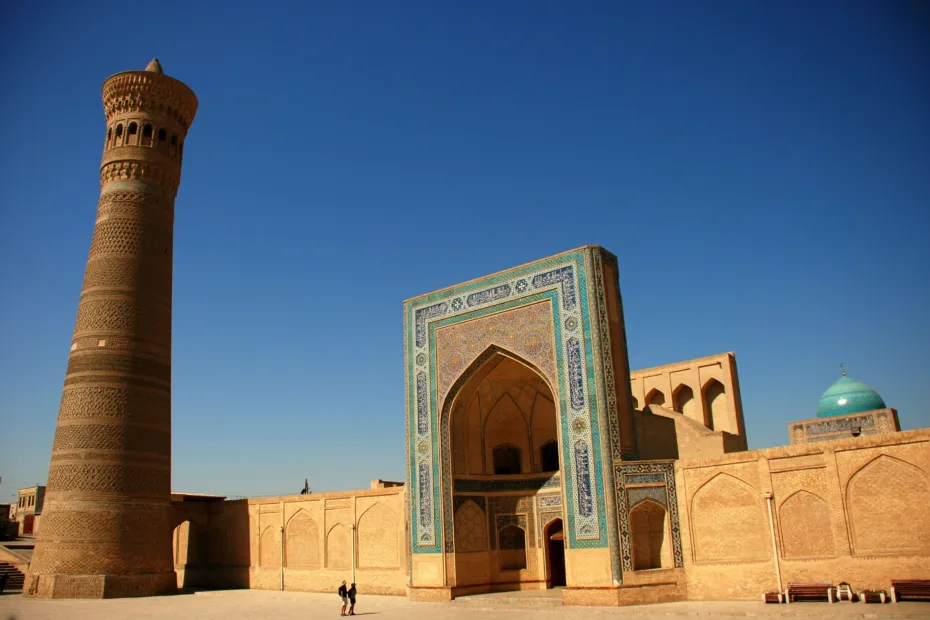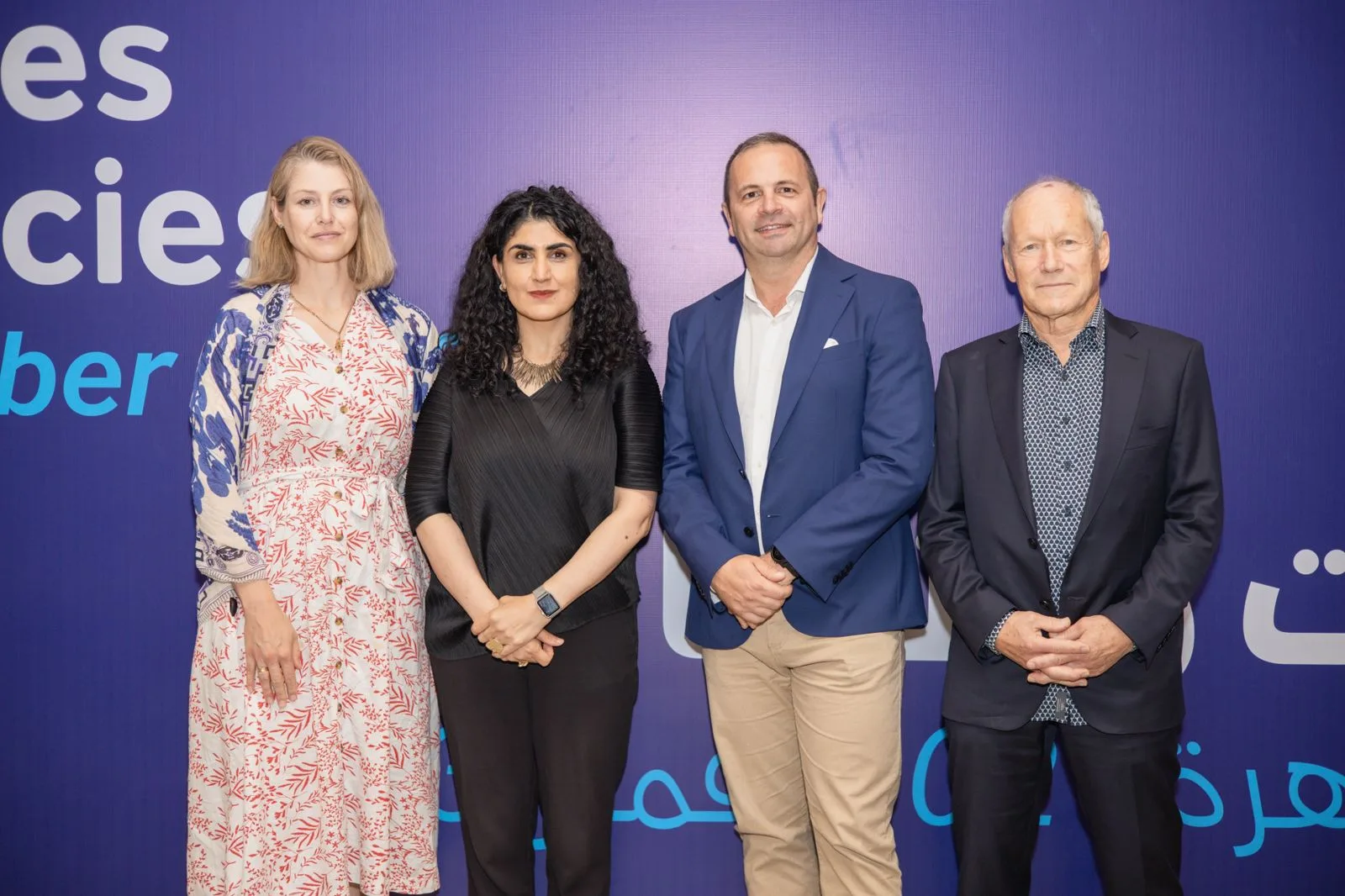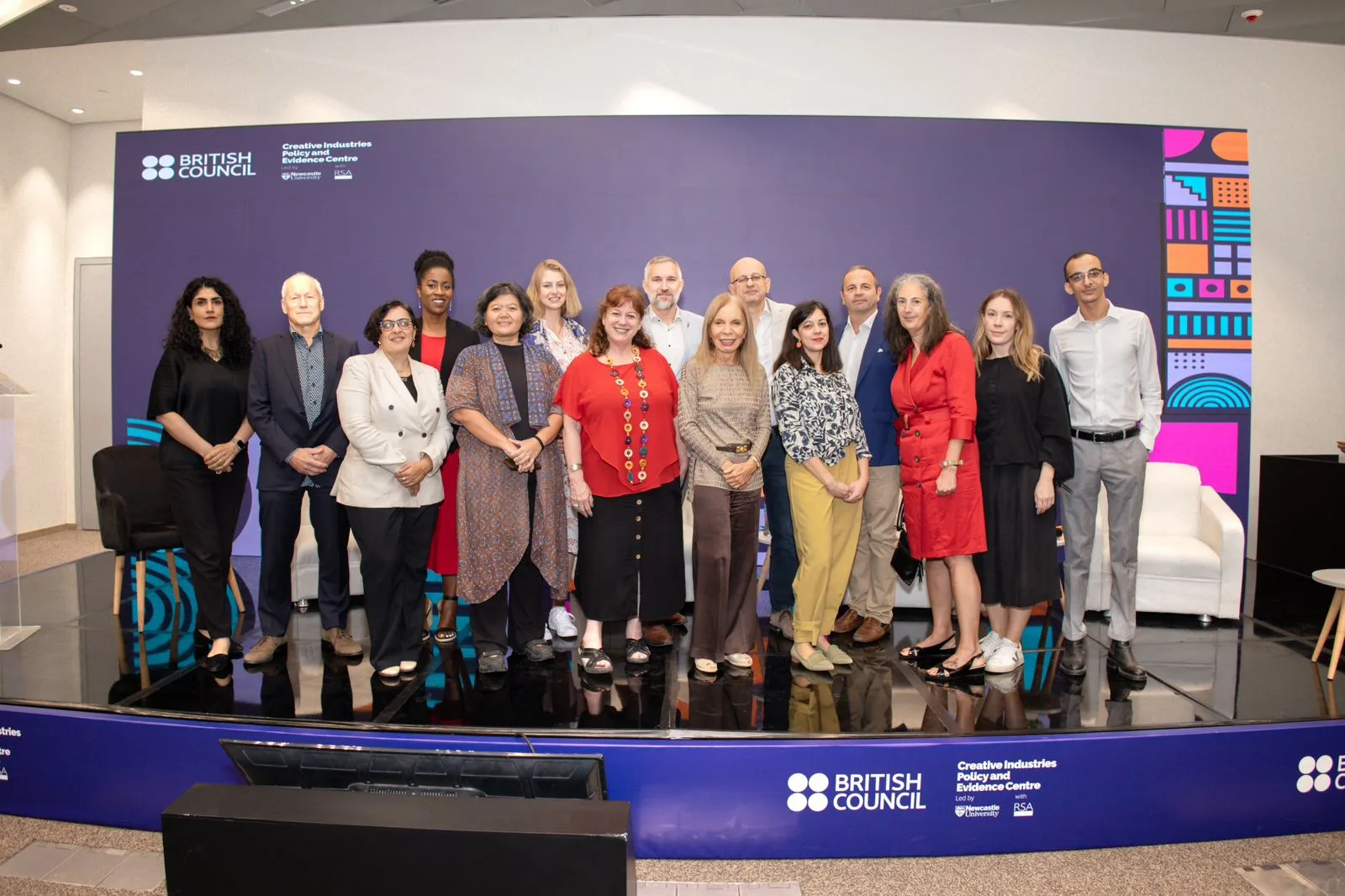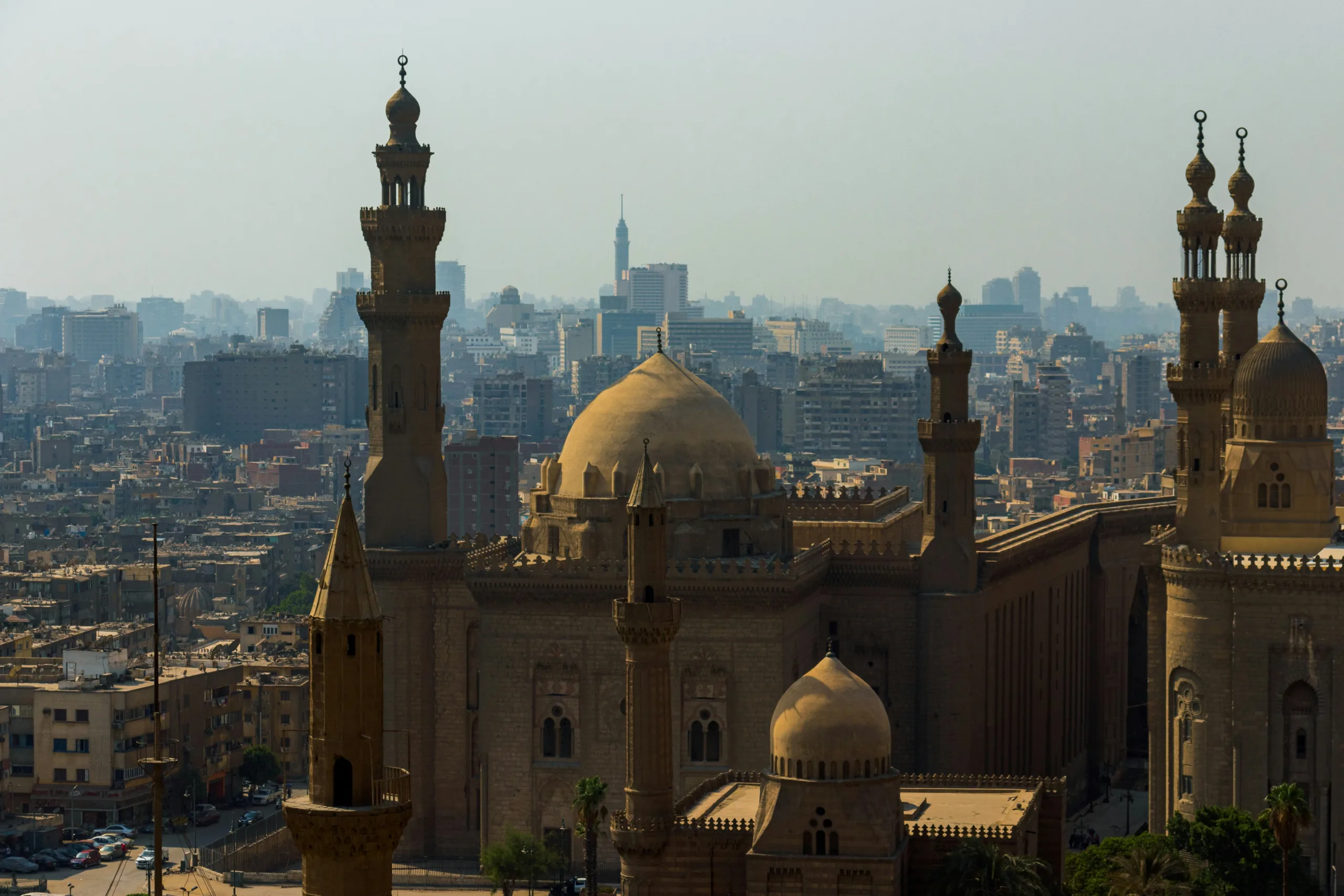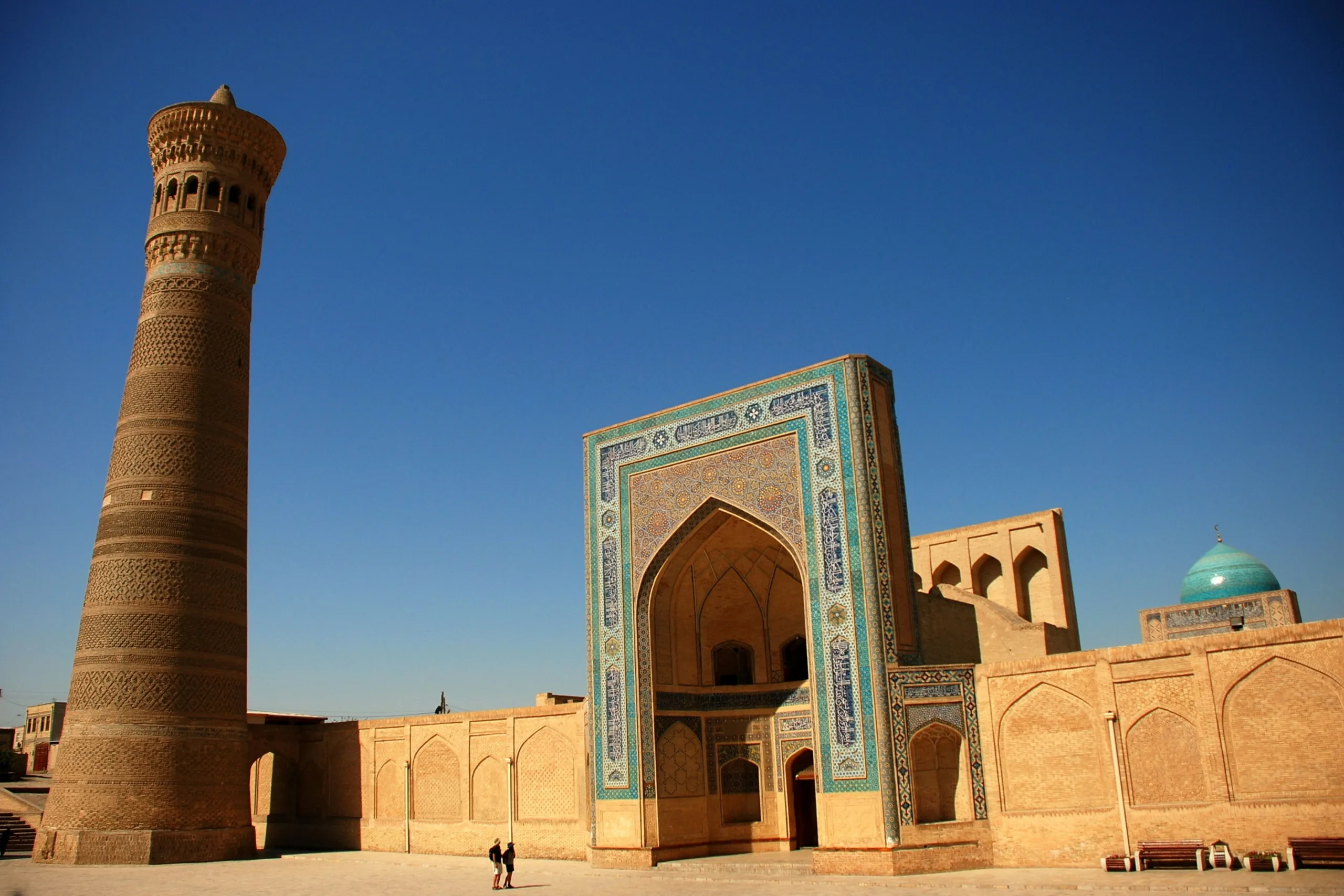Dr Martin Smith and Dr Gerald Lidstone, Institute for Creative and Cultural Entrepreneurship (ICCE), Goldsmiths, University of London

A blog from Creative PEC’s Global Creative Economy Council
How did the British Council combine with industry practitioners and academics to promote the growth of a regional network for developing the creative economy in Central Asia – a vast but relatively unknown part of the world that Professor Peter Frankopan has called the “The New Silk Roads”?1
Part of the answer, accompanied by a penetrating analysis of the issues raised by this initiative, was given by Daniyar Amanaliev, a leading Kyrgyz entrepreneur, visionary and self-confessed ‘dreamer’ (and member of the GCEC) at the BEYOND 2023 conference in London late last year. The story is also referenced in a recent report from the Foreign Affairs Committee (FAC) of the House of Commons, Countries at crossroads: UK Engagement in Central Asia.2
The history of ‘engagement’ began with an episode of ignominious imperial failure. On 24th June 1842, two British soldier diplomats, Lieutenant Colonel Charles Stoddart and Captain Arthur Conolly, were publicly beheaded in front of the Ark Fortress in Bukhara (now in Uzbekistan) on charges of spying for the British Empire. The executions caused uproar at home: Stoddart and Conolly became household names as heroes in what became known as ‘the Great Game’, the struggle between the Russian and British empires for control of the land routes through Central Asia, Afghanistan and Persia, and thus the road to India.
Bukhara, like Samarkand and Khiva amongst other fabled names of the old Silk Roads, are now popular tourist destinations. Yet Uzbekistan, alongside neighbouring Kazakhstan, Kyrgyzstan, Turkmenistan and Tajikistan, is now the focus of a different kind of ‘great game’ – a struggle for political and economic influence between post-Soviet Russia and the People’s Republic of China.
The two largest states, resource-rich Kazakhstan and Uzbekistan, are trying in varying degrees to keep Russia and China at arm’s length. This is challenging but far more difficult for their smaller and poorer neighbours.
This is the geopolitical background behind the FAC’s report, much of which is concerned with the role of London-based intermediaries in enabling the illicit financial activities of the region’s ruling elites. The report also includes forensic accounts of the region’s extreme vulnerability to climate change and the post-pandemic deterioration in respect for human rights exhibited by the region’s governments. This analysis, together with a recognition of the UK’s relatively limited economic leverage, makes for sobering reading.
If there are grounds for modest optimism they rest largely on demographics, an enthusiasm for replacing Russian with English as the second language of choice, an appetite for education reform and a growing interest in the development of a prosperous regional creative economy. These issues are addressed in a section of the FAC’s report headed “Young people, education and soft power”, which responds to written submissions from the authors and from Charles Garrett, formerly UK Ambassador to Kyrgyzstan in Bishkek.
The Committee concludes that:
“Education provides one of the most promising opportunities for the UK to be a force for good and to build soft influence in Central Asian countries—contributing to a generation of educated young people who know English and have had exposure to the UK.”3
All five of the region’s countries have relatively young populations. This provides opportunities for UK universities, but the main vectors of UK influence in the region since the collapse of the Soviet Union have been the BBC and the British Council (BC): language teaching, Sherlock, the Premier League and cultural diplomacy have replaced imperial adventurism.
The British Council has played a pivotal role in projecting UK cultural and entrepreneurial values, initially through a three year programme called ‘Creative Central Asia’, in which both of us were involved. The idea was to stimulate the development of a regional creative identity, and new regional networks, by deploying the convening power of the Council. For successive three-day annual events the Council flew out a delegation of cultural leaders and creative entrepreneurs from across the UK. In Astana (2017 and 2018) and Tashkent (2019) they mixed with representatives of the rising creative class from Kazakhstan, Uzbekistan and Kyrgyzstan (and latterly Tajikistan) within the framework of a series of structured programmes of presentations and workshops. Everyone had the opportunity to contribute and, most importantly, for the first time to connect with each other.
In spite of the impact of the pandemic and budget cuts, many of these networks have been maintained, both online and in person, largely due to the efforts of Galina Koretskaya, the British Council’s Head of Arts and Creative Economy in Central Asia.
A larger Council programme, ‘Creative Spark’, which involved 60 partner UK universities in projects in Kazakhstan and Uzbekistan (plus Ukraine, Georgia, Armenia and Azerbaijan), focused on delivering enterprise skills for the creative economy and the promotion of institutional and educational reform.
The importance of this work in maintaining UK engagement in Central Asia is recognised by the FAC’s report, which makes two key recommendations. The first is that the BC should open permanent offices in Bishkek (Kyrgyzstan) and Dushanbe (Tajikistan). The second is that the UK government should
“Galvanise its support of the creative sector in Central Asian countries by sending a high-level ministerial delegation to the World Conference on Creative Economy in Uzbekistan in 2024”.4
This second recommendation has since been accepted by the government.5
It is clear that the British Council’s efforts have borne fruit and that UK politicians understand their value in helping to maintain dialogue with a group of autocratic but now vulnerable post-Soviet states. More importantly, as Daniyar Amanaliev remarked at BEYOND 2023, for the smaller and poorer regional states in particular, creative and IT sector development provide the only viable prospect of stemming the exodus of young talent to the countries of the global north.
Footnotes
1 Peter Frankopan, The New Silk Roads, Bloomsbury, 2018.
2 HC 1158, published on 10 November 2023.
3 Ibid., p.57.
4 Ibid., p.58.
5 Countries at Crossroads: UK Engagement in Central Asia: Government’s Response to the Committee’s Tenth Report of Session 2022-23, HC 488, published 25th January 2024.
Creative PEC’s blog provides a platform for independent, evidence-based views. All blogs are published to further debate, and may be polemical. The views expressed are solely those of the author(s) and do not necessarily represent views of Creative PEC or its partner organisations.
Image credit: Photo by Snowscat on Unsplash
More on the Global Creative Economy Council
Global Creative Economy Council: An introduction from the Former Chair
John Newbigin introduces Creative PEC's Global Creative Economy Council
Introducing the Global Creative Economy Council (GCEC)
Hasan Bakhshi and Rehana Mughal explain what the GCEC is trying to achieve and how the network will …
Creative Industries in Egypt: An Overview
Omar Nagati – GCEC Member and Co-Founder of CLUSTER – outlines the findings of a study into the crea…
UK engagement in Central Asia: Education and the creative economy in the territories of the ‘new Silk Roads’
Dr Martin Smith and Dr Gerald Lidstone look at the history of the British Council's work in Central …
